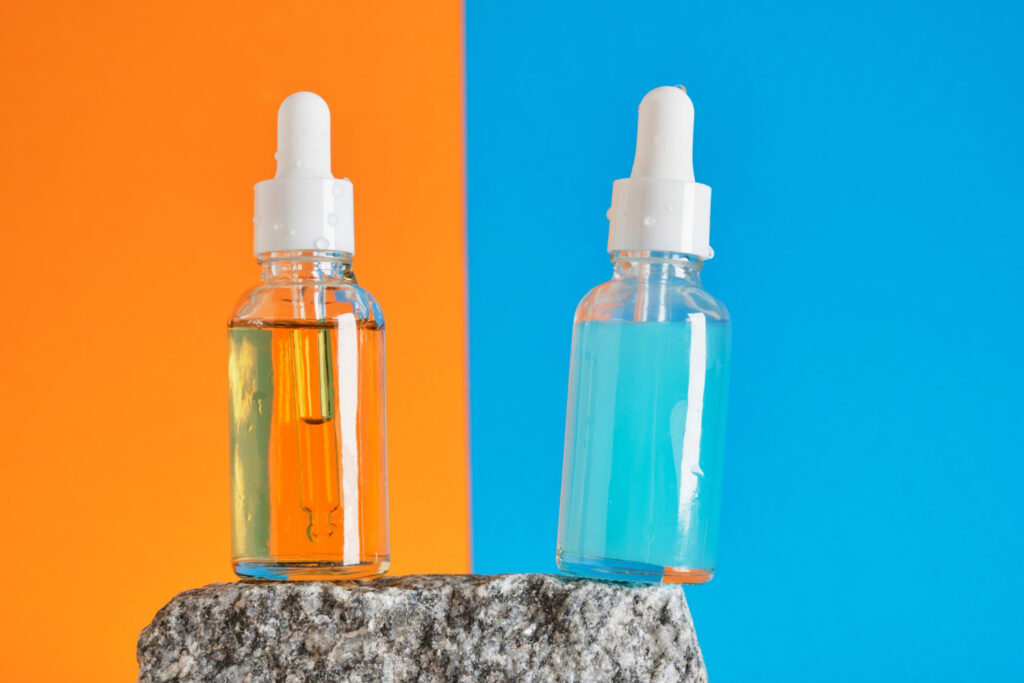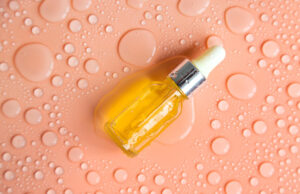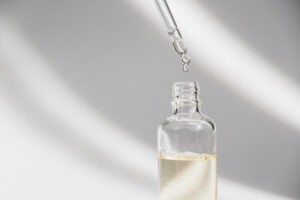CONTENTS

Face Oil vs Serum, Which Reigns Supreme?
Face oil vs. serum discourse has been an age-old debate within the skincare industry. No wonder; both possess similar characteristics: rich and treat skin well.
On the one hand, you have face oil — a product that counters the perception of too much oil clogging pores. On the other side, you have serums — light and less oily products designed to penetrate beneath the skin’s surface for optimal effectiveness.
But which is truly better for your skin? Let’s explore some of the information on face oil vs serum to help answer this question. Read on!
Face Oils vs. Serums: What Do You Really Need in Your Routine?
Aside from the essential basic skincare products — toner, moisturizer, and sunscreen — face oil and serum act as additional agents to target specific skin concerns. Currently, various choices of both products are catered to specific skin types and concerns.
But which one do you really need in your skincare routine? Let’s dig deeper into these two gems!
What is Face Oil?

Face oil is a product used to moisturize and nourish the skin. It is often made from natural ingredients such as seed oils and other plant extracts, which can help to balance your skin’s moisture levels while protecting against environmental damage.
Facial oil can be used on all skin types, including dry, sensitive, oily, and combination. Using face oil also helps to reduce acne and signs of aging like wrinkles and fine lines.
Benefits of Face Oils

Face oils are an excellent choice for those looking to keep their skin looking vibrant and healthy. Here are some benefits of using face oils:
- Helps lock in moisture and keeps skin hydrated throughout the day
- Reduces wrinkles and fine lines appearance of, making you look younger
- Evens out your skin tone by reducing redness and age spots
- Balances oil production, which prevents clogged pores and breakouts
- Reduces inflammation and other signs of irritation, making your skin feel soothed and comfortable
- Provides beneficial antioxidants that help protect the skin from environmental damage caused by free radicals, pollution, and UV rays
How To Use Face Oil

Face oil is easy to apply. Here are several tips on how to use it:
- Wash your face with a cleanser before applying the oil. This will help it penetrate deeper into the skin and absorb more easily.
- Massage a few drops of face oil onto your fingertips and gently massage them into your skin in an upward, circular motion. Focus on problem areas that need extra moisture and hydration, like around the eyes, nose, or mouth.
- Let the oil sit in for at least five minutes before using other products or makeup. This will give it time to deeply nourish and moisturize your skin’s surface.
- For added benefits, mix a few drops of essential oils like lavender or rosehip into the face oil blend before application for aroma therapy or healing properties.
- If you want extra hydration at night, layer a thicker face oil over a lighter moisturizer for deep moisture while you sleep.
What is Serum?

Serum is a must-have in any skincare routine, providing an extra burst of skin-nourishing ingredients. Usually, people use a serum to improve a specific skin concern.
This product penetrates deep into the skin, offering intense hydration, anti-aging benefits, and more.
Most serums are suitable for all skin types thanks to their lightweight formulas, although efficacy depends on the ingredients used.
Common serum ingredients include hyaluronic acid, retinol, vitamin C, and niacinamide, each of which has unique benefits depending on your skin’s needs.
With consistent use of serum, your skin will be better able to maintain its health and look youthful.
Benefits of Serum

Each serum product is made special with different aims. However, they mainly offer similar basic benefits, including:
- Helps to reduce the look of wrinkles and fine lines, making your skin appear smoother and firmer
- Hydrates your skin and reduces dryness
- Often contains antioxidants that can help protect the skin from damage caused by free radicals
- Aids in improving the appearance of dark spots, lightening hyperpigmentation, and evening out skin tone
- Improves the overall texture of your complexion by smoothing out rough patches and refining pores for a brighter, more youthful-looking complexion
How To Use a Serum

Using a serum can help improve the look and feel of your skin and give it a much-needed boost of hydration. However, knowing how to correctly apply a serum to get the best results can be tricky.
Here are some tips on using serums for optimal effect:
- Cleanse your face with a facial wash before applying the serum. This will allow the serum to penetrate your pores more deeply, giving you better results.
- Apply only a tiny amount of product onto your fingertips or your face and gently rub it in circular motions over your clean skin. Avoid tugging or rubbing too hard since this can cause irritation or redness.
- Let the product fully absorb into your skin before applying any other products, such as moisturizers or sunscreen. The key is to give it time to sink in so that its effectiveness is maximized.
- Make sure you select the right type of serum for your specific skin type and needs. If you’re unsure which one will work best for you, consult with an expert who can advise based on what they see and recommend appropriate products.
How To Choose Between Facial Oil and Facial Serum?

When choosing between facial oils and serums, you should consider your skin type first.
If you have dry skin, you may benefit more from oil as they provide extra hydration and are especially effective in combating dryness.
Oils are also beneficial for those with acne-prone skin or sensitive skin as they help reduce inflammation and nourish the skin without being too heavy.
Conversely, if you have oily or combination skin, serums might be the way to go since they typically contain fewer oils and are usually lighter in weight.
Serums are packed with active ingredients that effectively target specific problems, such as wrinkles or dark spots. Additionally, their high concentrations of active ingredients promise longer-lasting benefits than oils.
Ultimately, choosing between a facial oil or serum depends on your individual skin needs and concerns.
Frequently Asked Questions
What is the difference between a face oil and a serum?
The main difference between a face oil and a serum lies in their consistency. Typically, oils are thicker and more nourishing, while serums are thinner and contain active ingredients to help target specific skin issues.
Also, oils offer deep hydration, which makes them ideal for dry or sensitive skin, while serums provide long-term benefits such as reducing wrinkles or dark spots.
Can I use both face oil and serum together?
Yes, you can absolutely use both face oil and serum together! To maximize the results of your skincare routine, it’s recommended to apply the serum first and then finish with the oil. This will help ensure that both products’ active ingredients are activated for maximum effectiveness.
Which one is better for oily skin?
Both face oil and serum offer great benefits to oily skin. However, if you want quick hydration without the potential of clogged pores and excessive oiliness, a serum is the way to go.
Can face oils be used in place of moisturizer?
No, you cannot replace moisturizer or face cream with face oils. Instead of replacing one, it’s better to use both simultaneously to get the optimal result.
Are face oils and serums suitable for all skin types?
Most face oils and serums can be appropriate for all skin types. However, choosing the right product for your skin type is essential. Both products provide hydration, so using them regularly can help maintain your skin to stay healthy and revitalized.
Conclusion
All in all, face oil and serum have unique benefits that can make your skin look healthier. If you’re stuck between these two products, consider your specific skin type and needs to determine which one is right for you.
In the end, whether you choose to use a face oil or serum (or both) is up to you and your skin’s needs. Experiment with different products and pay attention to how your skin reacts. And of course, don’t forget the sunscreen.
Have you tried both facial serums and oils? What product worked better for you and your skin type? Let us know in the comments below!


